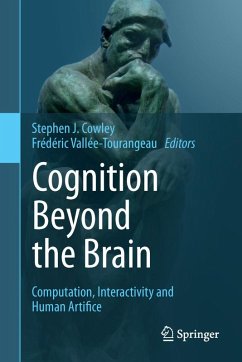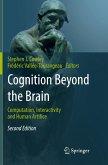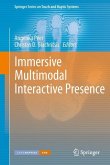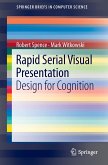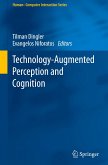Cognition Beyond the Brain challenges neurocentrism by advocating a systemic view of cognition based on investigating how action shapes the experience of thinking. The systemic view steers between extended functionalism and enactivism by stressing how living beings connect bodies, technologies, language and culture. Since human thinking depends on a cultural ecology, people connect biologically-based powers with extended systems and, by so doing, they constitute cognitive systems that reach across the skin. Biological interpretation exploits extended functional systems.
Illustrating distributed cognition, one set of chapters focus on computer mediated trust, work at a construction site, judgement aggregation and crime scene investigation. Turning to how bodies manufacture skills, the remaining chapters focus on interactivity or sense-saturated coordination. The feeling of doing is crucial to solving maths problems, learning about X rays, finding an invoice number, or launching a warhead in a film. People both participate in extended systems and exert individual responsibility. Brains manufacture a now to which selves are anchored: people can act automatically or, at times, vary habits and choose to author actions. In ontogenesis, a systemic view permits rationality to be seen as gaining mastery over world-side resources. Much evidence and argument thus speaks for reconnecting the study of computation, interactivity and human artifice. Taken together, this can drive a networks revolution that gives due cognitive importance to the perceivable world that lies beyond the brain.
Cognition Beyond the Brain is a valuable reference for researchers, practitioners and graduate students within the fields of Computer Science, Psychology, Linguistics and Cognitive Science.
Illustrating distributed cognition, one set of chapters focus on computer mediated trust, work at a construction site, judgement aggregation and crime scene investigation. Turning to how bodies manufacture skills, the remaining chapters focus on interactivity or sense-saturated coordination. The feeling of doing is crucial to solving maths problems, learning about X rays, finding an invoice number, or launching a warhead in a film. People both participate in extended systems and exert individual responsibility. Brains manufacture a now to which selves are anchored: people can act automatically or, at times, vary habits and choose to author actions. In ontogenesis, a systemic view permits rationality to be seen as gaining mastery over world-side resources. Much evidence and argument thus speaks for reconnecting the study of computation, interactivity and human artifice. Taken together, this can drive a networks revolution that gives due cognitive importance to the perceivable world that lies beyond the brain.
Cognition Beyond the Brain is a valuable reference for researchers, practitioners and graduate students within the fields of Computer Science, Psychology, Linguistics and Cognitive Science.
From the reviews:
"Cognition Beyond the Brain is a collection of works that had its beginnings in a 2009 symposium on 'distributed thinking' ... building upon presentations from this meeting and incorporating later contributions on the subject. ... this book is an excellent reference on the topic. ... the chapters of this book do a good job of reflecting the diversity of opinion in this area. ... In summary, the book is a valuable resource as an overview on distributed cognition." (Emma Norling, Journal of Artificial Societies and Social Simulation, Vol. 17 (1), 2014)
"Cognition Beyond the Brain is a collection of works that had its beginnings in a 2009 symposium on 'distributed thinking' ... building upon presentations from this meeting and incorporating later contributions on the subject. ... this book is an excellent reference on the topic. ... the chapters of this book do a good job of reflecting the diversity of opinion in this area. ... In summary, the book is a valuable resource as an overview on distributed cognition." (Emma Norling, Journal of Artificial Societies and Social Simulation, Vol. 17 (1), 2014)
"Cognition Beyond the Brain: Computation, Interactivity, and Human Artifice, a collection of 14 essays, is a fine representation of the current state of the field in distributed cognition-not only for empirical developments but also for disagreements about how to think about distributed cognition. ... I highly recommend this collection of essays to philosophers and psychologists interested in where distributed cognition is, what it could be, and how it can get from one to the other." (Charles Lassiter, Philosophical Psychology, Vol. 28 (8), 2015)
"Cognition Beyond the Brain is a collection of works that had its beginnings in a 2009 symposium on 'distributed thinking' ... building upon presentations from this meeting and incorporating later contributions on the subject. ... this book is an excellent reference on the topic. ... the chapters of this book do a good job of reflecting the diversity of opinion in this area. ... In summary, the book is a valuable resource as an overview on distributed cognition." (Emma Norling, Journal of Artificial Societies and Social Simulation, Vol. 17 (1), 2014)
"It offers a wide range of perspectives on the interaction and interdependencies between the human brain and the environment and context in which it exists. It offers an excellent entry point for readers interested in cognitive studies of thebrain ... . Overall, we found the book enjoyable to read, and appreciated the editors' efforts in assembling a well-balanced set of contributions. It provides insight on how cognition may work, and what influences cognition." (Franz Kurfess and Kevin Dermody, Computing Reviews, December, 2013)
"Cognition Beyond the Brain is a collection of works that had its beginnings in a 2009 symposium on 'distributed thinking' ... building upon presentations from this meeting and incorporating later contributions on the subject. ... this book is an excellent reference on the topic. ... the chapters of this book do a good job of reflecting the diversity of opinion in this area. ... In summary, the book is a valuable resource as an overview on distributed cognition." (Emma Norling, Journal of Artificial Societies and Social Simulation, Vol. 17 (1), 2014)
"It offers a wide range of perspectives on the interaction and interdependencies between the human brain and the environment and context in which it exists. It offers an excellent entry point for readers interested in cognitive studies of thebrain ... . Overall, we found the book enjoyable to read, and appreciated the editors' efforts in assembling a well-balanced set of contributions. It provides insight on how cognition may work, and what influences cognition." (Franz Kurfess and Kevin Dermody, Computing Reviews, December, 2013)

